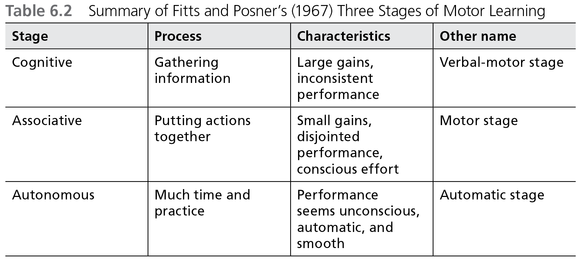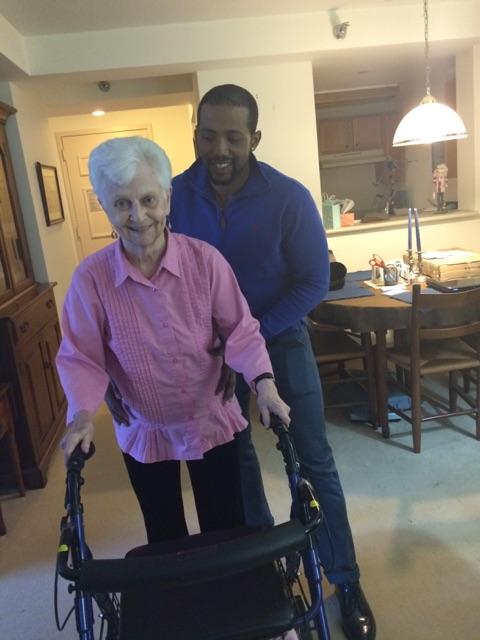The cliche, “practice makes perfect” is so overused and over-exemplified; however, it should never be overLOOKED. Indeed, it is very true that practice does make your efforts perfect. Why you ask? Well, it’s the result of a little scientific phenomenon known as Motor Learning. In a nutshell, motor learning is a concept that involves creating a new motor skill, a physical movement, applying it and mastering it. Motor Learning in humans began when we were all infants learning how to roll, crawl, cruise, and eventually walk. The concept also continues into adulthood when individuals learn new movement patterns that may be specific to a particular sport, dance, or movements necessary for everyday locomotion and activities of daily living.
Here’s a basic science lesson:
Our human brain is known as the anatomical command center. It’s responsible for sending very regulated signals down the anatomical chain to create movement. In simplicity, our brain sends output down to the spinal cord for the majority of movements to occur. The signal then gets propagated down to nerve roots, which in turn travels down to the individual nerves that are responsible for innervating muscle fibers within muscles. The innervated muscles must have a harmonious contraction for the efficient production of the intended movement. Yes, this propagation of signaling happens in an instant. Amazing, I know.
The conceptual cliche,”Practice makes perfect,” involves the body’s neuromuscular system developing a familiarity with a motor skill(s) after it is rehearsed frequently. After continuous attempts, your brain and body finally get adapted to whatever movement you are trying to master. There are 3 known stages of motor learning: 1) the cognitive stage, (2) associative stage, and (3) autonomous stage.
These are 3 proposed stages in which we learn, create mastery, and eventual automaticity of a motor skill. The aforementioned cliche is best correlated with the 2nd stage of the 3 stages of motor learning: the associative stage. First, we go through the cognitive stage: why and how to perform a skill; then, the associative stage is where we practice to learn exactly how to perform the skill. The last stage (automatic) is when we have practiced enough that the skill becomes automatic like second nature.
My point behind this blog is not to bombard and bore you with a condensed version of complex science, but rather to stress the importance of the 3 “C’s”: compliance, commitment, and consistency. In order to be successful, one must apply all three “C’s” when learning a new motor skill. Whether it’s learning how to walk appropriately with your physical therapist, learning the correct shooting mechanics with your basketball coach, or how to squat with proper body mechanics with your fitness trainer (I happen to teach all 3 by the way), you must practice, practice, practice to develop mastery. Don’t expect to get it the minute you are introduced to it with your respective source of influence. It takes multiple repetitions to train/retrain your body’s neuromuscular system for motor learning/re-learning to occur. What is practiced and repeated continuously becomes learned, and each subsequent repetition becomes easier. Moreover, research has shown that varied practice is best for long-term retention of skills. I will probably save that discussion for a later post.
Practice makes perfect guys. Numerous trial-and-error attempts are needed for the acquisition of skill. DO NOT think you’re underqualified. DO NOT be frustrated when you have failed a bunch of times. Frustration has the propensity to act as a big deterrent to new movement skill acquisition. Lastly, DO NOT give up. Keep pushing. As a fitness specialist, physical therapist, and basketball coach, trust and believe I know the importance of skill practice. More importantly, I know the practice of PATIENCE. Exercise patience with skill learning and you will master your target skill in no time.



